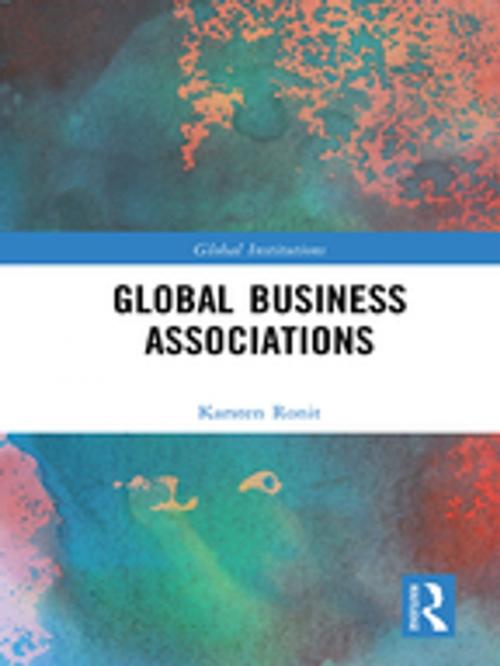Global Business Associations
Nonfiction, Social & Cultural Studies, Political Science, International, International Relations, Politics, History & Theory| Author: | Karsten Ronit | ISBN: | 9781317336228 |
| Publisher: | Taylor and Francis | Publication: | October 26, 2018 |
| Imprint: | Routledge | Language: | English |
| Author: | Karsten Ronit |
| ISBN: | 9781317336228 |
| Publisher: | Taylor and Francis |
| Publication: | October 26, 2018 |
| Imprint: | Routledge |
| Language: | English |
Global business tends to be perceived as a number of individual but powerful multinational corporations, capable of controlling markets and influencing political decisions; in fact, global business is highly organized through a plethora of associations that bring together competing companies and conflicting national businesses. Indeed, global business associations have a long history and, with accelerated globalization, further opportunities emerge for unified business action.
This book fills a significant gap in the current literature, examining the pivotal role of global business associations and providing a concise and accessible overview of their different functions in a range of institutional contexts. Beginning by clarifying the concept of global business associations, the author puts their role into a historical and contemporary context in which their economic, social and political functions are sketched. Their historical origin is outlined, including the proliferation of global associations in the twentieth and twenty-first centuries. He then moves on to explore and analyse the different types of actors, explaining key categories and their place in the organization of global business with chapters on peak associations (e.g. ICC and WEF), industry associations, alliances, as well as clubs and think tanks, and facilitators.
Covering the history, current role and future evolution of this dynamic category of associations, this work will be essential reading for students and scholars of international political economy, international relations, international organizations and global governance.
Global business tends to be perceived as a number of individual but powerful multinational corporations, capable of controlling markets and influencing political decisions; in fact, global business is highly organized through a plethora of associations that bring together competing companies and conflicting national businesses. Indeed, global business associations have a long history and, with accelerated globalization, further opportunities emerge for unified business action.
This book fills a significant gap in the current literature, examining the pivotal role of global business associations and providing a concise and accessible overview of their different functions in a range of institutional contexts. Beginning by clarifying the concept of global business associations, the author puts their role into a historical and contemporary context in which their economic, social and political functions are sketched. Their historical origin is outlined, including the proliferation of global associations in the twentieth and twenty-first centuries. He then moves on to explore and analyse the different types of actors, explaining key categories and their place in the organization of global business with chapters on peak associations (e.g. ICC and WEF), industry associations, alliances, as well as clubs and think tanks, and facilitators.
Covering the history, current role and future evolution of this dynamic category of associations, this work will be essential reading for students and scholars of international political economy, international relations, international organizations and global governance.















